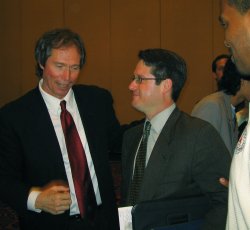By Rick Ross
In a recent opinion/editorial New York Times piece titled “The Cult Deficit” columnist Ross Douthat stated, “the cult phenomenon feels increasingly antique, like lava lamps and bell bottoms.” He concluded, “Spiritual gurus still flourish in our era, of course, but they are generally comforting, vapid, safe — a Joel Osteen rather than a Jim Jones, a Deepak Chopra rather than a David Koresh.”
Interestingly, Deepak Chopra was a disciple of Indian guru Maharishi Mahesh Yogi, who was often called a “cult leader.” Maharishi was the founder of Transcendental Meditation (TM), a group frequently included on cult lists and still quite active amidst allegations of abuse.
Douthat doesn’t seem to care much about destructive cults or the damage they do. He laments that the Branch Davidians were “mistreated and misjudged.” Apparently the columnist hasn’t bothered to do much research as he has ignored the facts reported in the press about the Davidians and as established through the congressional record, the Danforth Report and submitted through court proceedings. Suffice to say that despite anti-government conspiracy theories David Koresh was one of the most vicious cult leaders in modern history. He was a deeply disturbed man that sexually preyed upon children and stockpiled weapons for the purpose of a violent end.
Journalist Tony Ortega at Raw Story points out that “The same week the US goes to war with one, NYT’s Douthat asks, where are the cults?” Ortega recognizes that many terrorist groups today are little more than personality-driven cults, such as al-Qaeda once was under the influence of Osama bin Laden. History is strewn with examples of the destruction wrought by totalitarian cults from the Nazis led by Adolf Hitler to the family dynasty that continues to dominate and control North Korea.
Not surprisingly following up Douthat doesn’t quote Ortega’s response, but instead prefers “Reason Magazine,” a Libertarian leaning publication that essentially agrees with him. Calling a column written by Peter Suderman a “very interesting response” Dauthat again ignores the facts and reiterates his opinion, as supposedly supported by a “religious historian” and venture capitalist. Suderman doesn’t dispute Douthat’s claim that cults are in decline, but rather uses it as a hook for his own spin about the “rise of subcultures.”
However, despite all the liberal or Libertarian posturing performed by these pundits the cult phenomenon has actually expanded around the world.
Unlike the United States, other countries in Europe, Asia, Africa and the Middle East have taken steps to respond to cults both through regulation and law enforcement. For example, in Japan and Germany cults have been closely monitored and in China some have been outlawed. Recently in Israel cult leader Goel Ratzon was convicted of sex crimes. Ratzon’s criminal conviction followed a lengthy government investigation and raid by law enforcement.
In addition to malevolent cult movements that have captivated nations the old familiar groups called “cults” that Douthat thinks have faded away actually are still around such as Scientology, the Unification Church, Hare Krishnas, Divine Light Mission, International Church of Christ, and Est (the Forum), although they may now use new names to avoid easy recognition.
In fact the United States has become something of a destination point and haven for groups called “cults.”
Dahn Yoga, led by Ilchee Lee, which started in South Korea, later set up shop in Arizona and now has a following across America.
Another recent arrival is the World Mission Society Church of God led by Zhang Gil-Jah, known to her devotees as “Mother God.” Not long ago Zhang opened her first church in New Jersey. Since then the group has grown rapidly across the US and Canada. Mother has even rented space in Manhattan not far from the New York Times.
Exiled “evil cult” leader Li Hongzhi, founder of Falun Gong, had to leave China, but found refuge in New York. According to researchers Li now has a flock of about !0,000 followers in North America. He claims to channel miraculous healing powers, which has allegedly led to medical neglect and death. The group has regular parades and demonstrations in NYC, Apparently Mr. Dauthat missed that.
Just as there will always be con men running schemes to take people’s money, there will always be destructive cult leaders exploiting the vulnerabilities of humanity. For con men and cult leaders it’s a business and it seems to be quite profitable. When Scientology founder L. Ron Hubbard died in 1986 his estate totaled hundreds of millions of dollars. Today, Scientology reportedly has a billion dollars in cash and vast real estate holdings. When Maharishi Mahesh Yogi died he left behind a spiritual empire valued in billions. Rev. Moon, the founder of the Unification Church, likewise left behind a hefty financial legacy, which is now managed by his children. Whenever there is cash and assets someone will step in to take over. And in the United States cults can operate with relative impunity as an unregulated industry.
No one knows exactly how many cult members there are in the United States. But almost every day I learn of a new group or organization that seems to fit the core criteria, which forms the nucleus for most definitions of a destructive cult. These core criteria were established by Robert Jay Lifton back in the 1980s. Rather than focusing on what a group believes Lifton’s criteria focus on the structure, dynamics and behavior of a group.
First, the single and most salient feature of a destructive cult is that it is personality-driven and animated by a living, charismatic and totalitarian leader. It is that leader who is the defining element and driving force of the group. Whatever the leader says is right is right and whatever the leader says is wrong is wrong. He or she determines the relative morality of the group and its core identity.
Second, the group engages in a process of thought reform to break people down and then redevelop them according to a predetermined mindset, which includes a diminished ability to think critically and/or independently. This is accomplished through a synthesis of coercive persuasion and influence techniques, relentlessly focused on individuals subjected to the group process.
Finally, the third criteria, is that the group does harm. This may vary from group to group as some groups are more harmful than others. One groups may simply exploit its members financially or through free labor, while others may make much more intense demands such as sexual favors, medical neglect or even criminal acts.
Whatever the group may present as its facade, be it religion, politics, exercise, martial arts, business scheme or philosophy, it is the structure, dynamics and behavior of the group that sets it apart and aligns it with the core criteria, which forms the nucleus for a definition of a destructive cult.
For those who would attempt to diminish the power of persuasion used by cults we have only to look at the pattern of behavior within such groups. Why would people act against their own interests, but instead consistently behave in the best interest of the cult leader? Why would cult members allow their children to die due to medical neglect or surrender them for sexual abuse? The most compelling explanation for such otherwise improbable behavior is that cult victims are under undue influence and therefore unable to think for themselves independently.
The dirty little secret about cults and their bag of tricks, is that we are all vulnerable to coercive persuasion and influence techniques. And this is particularly true when we are at a vulnerable time in our lives. This might include a period of grief, financial instability, isolation or some other personal setback. It is at these times that cults can more easily and deceptively recruit people. No one intentionally joins a cult. Instead, people are tricked by cults, through deceptive recruitment practices and a gradual indoctrination process that doesn’t immediately fully disclose the group’s expectations and agenda.
If people were not vulnerable to persuasion and influence techniques there would be no advertising or political propaganda. Every person approached isn’t taken in by cult recruitment tactics, just as everyone doesn’t buy a product promoted by slick advertising. The question is not why don’t cults recruit everyone, but rather how do they recruit people and why do those people often stay to their determent.
Instead of denial and fanciful claims about the decline of cults our best response regarding such groups is education and increased awareness. Understanding the basic warning signs of a potentially unsafe group is a good start. And utilizing the Web to find information about specific groups before becoming more deeply involved is always a good idea. More information helps people make more informed choices. Ignorance may lead to devastating consequences.
As Tony Ortega concluded, “As long as the media remains in the dark about destructive cults and the way they work, we’ll continue to get bewildering statements about ISIS, and ignorant columns from the New York Times.”



 McKean, a former campus minister
McKean, a former campus minister  The
The 